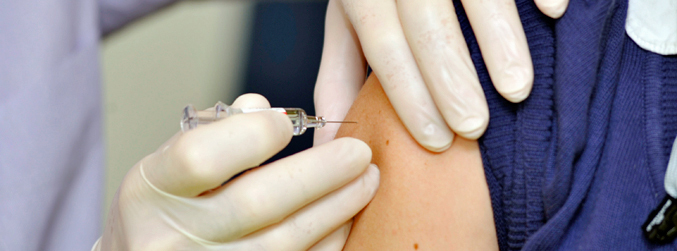There were 742 people hospitalised with flu on Friday, as pressure increases on acute hospitals in the post-Christmas period, according to the HSE.
While the HSE had expected and planned for a surge in hospitalisations at this time, the numbers so far are at the upper end of what they had predicted, a spokesperson said.
According to HSE CEO Bernard Gloster: “The healthcare system and in particular our acute hospitals have been working well over the Christmas period, with senior clinical staff on site ensuring patients are discharged when possible, and ensuring efficient patient flow through Emergency Departments. We expect pressure to continue over the coming days and we would urge the public to use alternative healthcare services for treatment such as GP, GP Out of Hours, injury units and pharmacies when appropriate. But if patients are very sick and in an emergency situation, they should of course come to their nearest Emergency Department.”
Emergency Departments are always available to treat seriously ill patients and the sickest patients are seen first. People with less severe injuries and symptoms may have to wait to be seen.
Please also be aware of any hospital visiting restrictions due to circulating infections, and for infection prevention and control purposes, which can be found on the HSE website.
From today, additional Daytime GP expanded clinics are available from some practices and patients should check if their GP is participating in this arrangement. Additional supports for GP OOH services are also being provided.
It’s still not too late to get vaccinated and flu and Covid-19 vaccination for target groups remains available – to see what vaccines are recommended for you: visit hse.ie, call HSELive on 1800 700 700 or talk to a participating GP or pharmacist.
Further healthcare information:
- Visit your local pharmacy for treating the common cold.
- Contact your family doctor as necessary.
- The GP out-of-hours service is a high quality clinical service for urgent care. Know the Christmas opening arrangements.
- Emergency Departments treat seriously ill patients. Those with less severe injuries and symptoms may have to wait to be seen in Emergency Departments. However, injury units treat injuries that are unlikely to need hospital admission. For example, broken bones, dislocated limbs, sprains and minor burns. Find out what injury units can and cannot treat.
- Patients who may need regular prescriptions are urged to get them filled by their own pharmacy.
- People are advised to check their first aid boxes are well stocked to treat minor ailments at home e.g. paracetamol, ibuprofen, calpol, neurofen, dioralyte and a thermometer.
- People should also check the HSE website for useful advice on common illnesses such as colds, coughs, flu, earache and sore throats
- In terms of advanced care planning, if you are caring for someone that is terminally ill, please have medicines that are recommended by your Palliative Care team or GP for situations that could arise.
- A lot of respiratory illnesses are likely to occur in children over the Christmas holidays, most of these illnesses can be managed at home with over-the-counter medications. Good advice on self-care is available from How to keep well in winter.
- Most of the time you do not need to visit your GP. But trust your instincts. Bring your child to your GP if you are worried about them.










